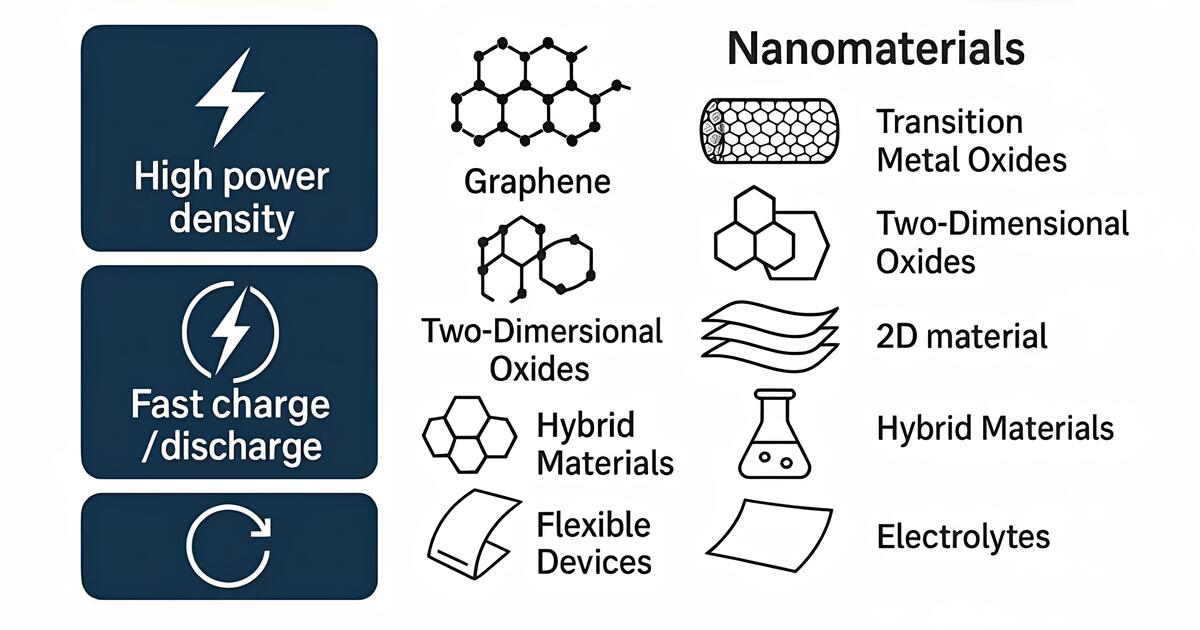Nano Materials for Supercapacitors with High Performance
A special issue of Nanomaterials (ISSN 2079-4991). This special issue belongs to the section "Energy and Catalysis".
Deadline for manuscript submissions: closed (21 November 2025) | Viewed by 209

Special Issue Editor
Interests: nanomaterials; electrochemical systems; ion-conducting membrane; energy storage; photoelectrochemical energy storage
Special Issue Information
Dear Colleagues,
The increasing demand for high-performance energy storage systems has driven intensive research into supercapacitors due to their superior power density, fast charge/discharge rates, and exceptional cycle stability. The performance of supercapacitors is primarily governed by the properties of electrode materials, where nanomaterials have demonstrated significant potential to enhance electrochemical characteristics.
This Special Issue will provide a platform for the latest advances in nanomaterials designed for high-performance supercapacitor applications. We welcome submissions focused on the synthesis, structural design, and characterization of novel nanostructured materials, including carbon-based nanomaterials (e.g., graphene, CNTs), transition metal oxides, sulfides, nitrides, conducting polymers, and emerging 2D materials. Contributions exploring hybrid or composite nanomaterials that leverage synergistic effects to improve capacitance, energy density, and cycling performance are particularly encouraged.
In addition, studies addressing the integration of nanomaterials into scalable electrode architectures, the development of advanced electrolytes, and innovative device configurations such as flexible or solid-state supercapacitors are within the scope of this Special Issue. Both experimental and theoretical/computational studies are welcome.
This Special Issue will foster interdisciplinary collaboration across materials science, chemistry, and energy engineering to expand the frontiers of supercapacitor research. We request original research articles, reviews, and perspectives that contribute to the understanding and advancement of nanomaterials in energy storage.
Dr. Fuqiang Liu
Guest Editor
Manuscript Submission Information
Manuscripts should be submitted online at www.mdpi.com by registering and logging in to this website. Once you are registered, click here to go to the submission form. Manuscripts can be submitted until the deadline. All submissions that pass pre-check are peer-reviewed. Accepted papers will be published continuously in the journal (as soon as accepted) and will be listed together on the special issue website. Research articles, review articles as well as short communications are invited. For planned papers, a title and short abstract (about 250 words) can be sent to the Editorial Office for assessment.
Submitted manuscripts should not have been published previously, nor be under consideration for publication elsewhere (except conference proceedings papers). All manuscripts are thoroughly refereed through a single-blind peer-review process. A guide for authors and other relevant information for submission of manuscripts is available on the Instructions for Authors page. Nanomaterials is an international peer-reviewed open access semimonthly journal published by MDPI.
Please visit the Instructions for Authors page before submitting a manuscript. The Article Processing Charge (APC) for publication in this open access journal is 2400 CHF (Swiss Francs). Submitted papers should be well formatted and use good English. Authors may use MDPI's English editing service prior to publication or during author revisions.
Keywords
- supercapacitors
- nanomaterials
- energy storage
- electrode materials
- carbon nanostructures
- transition metal oxides
- metal–organic frameworks (MOFs)
- 2D materials
- electrochemical performance
- high power density
Benefits of Publishing in a Special Issue
- Ease of navigation: Grouping papers by topic helps scholars navigate broad scope journals more efficiently.
- Greater discoverability: Special Issues support the reach and impact of scientific research. Articles in Special Issues are more discoverable and cited more frequently.
- Expansion of research network: Special Issues facilitate connections among authors, fostering scientific collaborations.
- External promotion: Articles in Special Issues are often promoted through the journal's social media, increasing their visibility.
- Reprint: MDPI Books provides the opportunity to republish successful Special Issues in book format, both online and in print.
Further information on MDPI's Special Issue policies can be found here.






